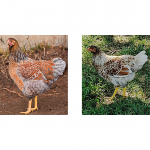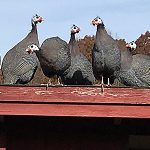
Successfully transitioning young poultry from their brooder to permanent outdoor facilities requires following a few common-sense guidelines. First determine that the birds are ready to move from their brooder, taking into consideration such factors as how well feathered the birds are, and outdoor temperatures during both daytime and nighttime. Degree of Feathering Fully-feathered poultry are […]
Continue Reading








